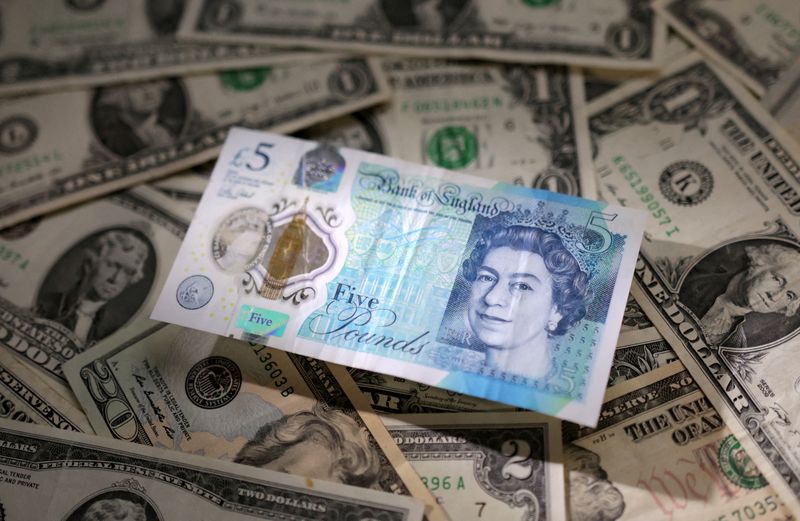LONDON (Reuters) - The pound slipped against the dollar and also lost ground against the euro on Monday, as the U.S. currency was supported by last week's strong jobs data, while in Britain, business activity data underscored the continued stickiness of inflation.
Sterling fell 0.5% to $1.2387 as the dollar was supported by traders' increasing expectations of the chance of another U.S. rate hike, perhaps in July if the Fed chooses to 'skip' a rate increase at this month's meeting.
The U.S. data showed jobs growth in the world's biggest economy accelerated in May, but a jump in the unemployment rate to a seven-month high of 3.7% suggested that labour market conditions were easing,
"The headline story on the dollar is relatively straightforward at the moment. The US economy continues to surprise to the upside, while Europe and China have been weaker than expected. That has been and continues to be positive for the dollar in the near term," said Goldman analysts in a weekend note.
The pound also softened against the euro, which rose 0.35% to 86.31 pence. The euro last week dropped as low as 85.68 pence, its lowest against the British currency since December.
Activity data released on Monday showed British services firms reported the strongest input cost pressures in three months in May and a steep increase in prices charged.
Some investors argue that rate hikes could weigh on the pound due to their effect on British growth, though Barclays (LON:BARC) analysts in a note offered an alterative view.

"Although further tightening will ultimately weigh on growth, the UK's current inflation problem is a symptom of resilient demand amidst tight labour markets and reduced aggregate supply, in our view," they said in the note.
"As such, further tightening will enhance sterling's carry advantage and afford some support to the pound."